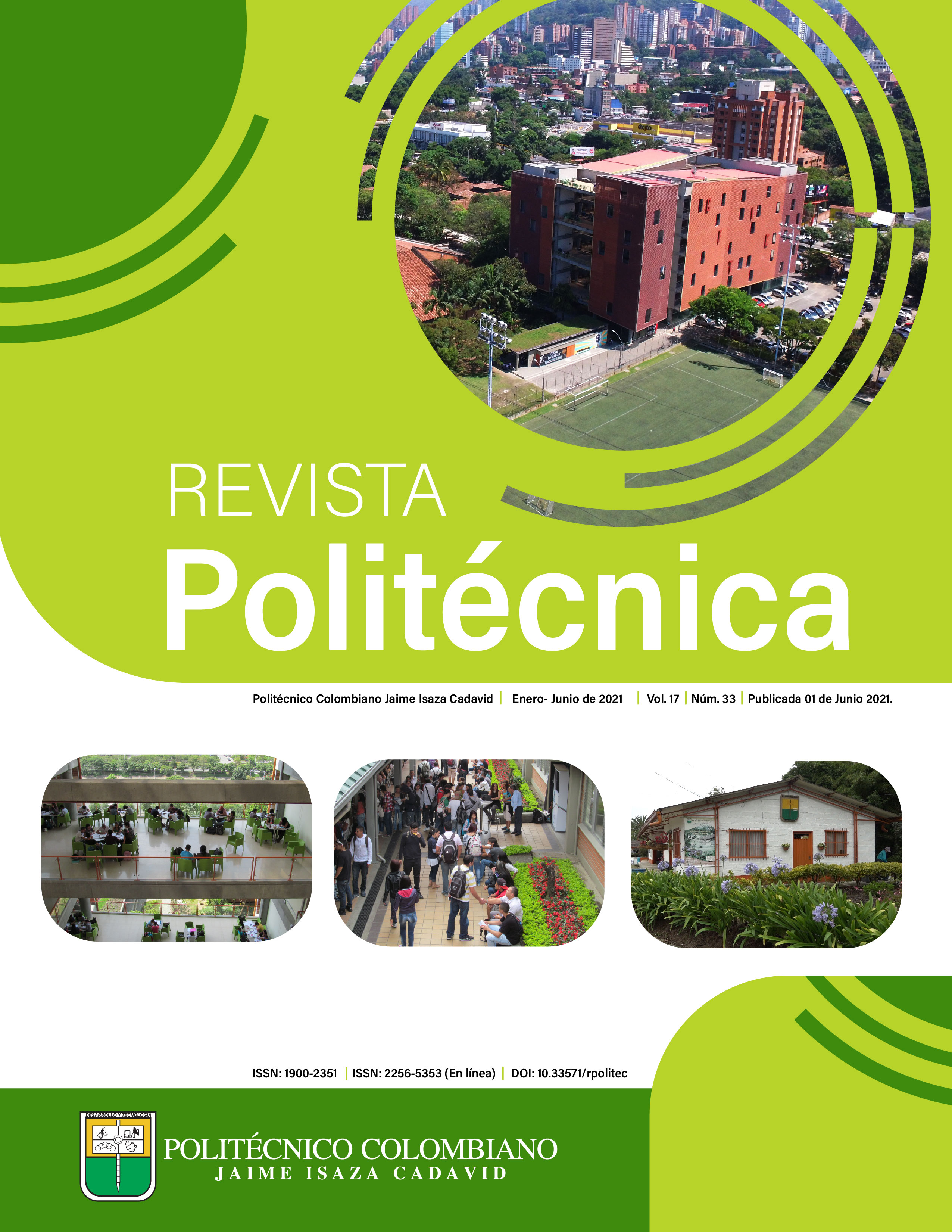Coffee challenge: a game for teaching software design patterns
DOI:
https://doi.org/10.33571/rpolitec.v17n33a3Keywords:
Enseñanza de patrones de diseño, aprendizaje basado en juegos, ingeniería de softwareAbstract
Game-based learning related to software engineering aims to increase learning effectiveness in the classroom and allow knowledge acquired to be put into practice. Design patterns are reusable solutions to recurring problems in software design, creating clean and maintainable software. However, applying design patterns correctly requires experience, therefore, it is difficult for students to learn design patterns. In this article, the design patterns, their structure and possible applications were investigated, in addition to reviewing existing educational games in computing. Afterwards, we develop a game for teaching design patterns depending on the popularity of the pattern and its application to a web page. We evaluated the game with computer science students. Finally, we exhibit the results obtained by test pilot sessions.
Article Metrics
Abstract: 1978 PDF (Español (España)): 863 HTML (Español (España)): 312PlumX metrics
References
H. Mu and S. Jiang. “Design patterns in software development”, in 2011 IEEE 2nd International Conference on Software Engineering and Service Science, Beijing, 2011, pp. 322-325. [Online]. doi: 10.1109/ICSESS.2011.5982228
V. Dimitrios and M. Agoritsa. “The effect of games and simulations on higher education: a systematic literature review”, International Journal of Educational Technology in Higher Education, vol. 14, no. 1, pp. 1-33, December 2017. [Online]. doi: 10.1186/s41239-017-0062-1
M. Kosa, M. Yilmaz, R. V. O’Connor and P. M. Clarke. “Software Engineering Education and Games: A Systematic Literature Review”. Journal of Universal Computer Science, vol. 22, no. 12, pp. 1558-1574, December 2016.
C. G. von Wangenheim and P. E. Battistella “Games for Teaching Computing in Higher Education A Systematic Review” in IEEE Technology and Engineering Education, vol. 1, no. 3, pp. 8-30, March 2016.
Y. Wang, c. Zhang and F. Wang. “What Do We Know about the Tools of Detecting Design Patterns?”, in 2018 IEEE International Conference on Progress in Informatics and Computing, Suzhou, 2018, pp. 379-387. [Online]. doi: 10.1109/PIC.2018.8706318
P. Gestwicki and F. S. Sun. “Teaching Design Patterns Through Computer Game Development”, in ACM Journal on Educational Resources in Computing, 2008, pp. 1-21. [Online]. doi: 10.1145/1348713.1348715
P. C. Lotlikar and R. Wagh. “Using POGIL to Teach and Learn Design Patterns-A Constructionist Based Incremental, Collaborative Approach”, in 2016 IEEE 8th International Conference on Technology for Education Using, Mumbai, 2016, pp. 46-49. [Online]. doi: 10.1109/T4E.2016.018
H. Zhu and I. Bayley. “On the Composibility of Design Patterns: Extended Abstract”, in 2017 IEEE 41st Annual Computer Software and Applications Conference (COMPSAC), Turin, 2017, pp. 369-370. [Online]. doi: 10.1109/COMPSAC.2017.177
M. A. Gómez, G. Jiménez, G. and J. Arroyo. “Teaching Design Patterns Using a Family of Games”, in Proceedings of the 14th Annual SIGCSE Conference on Innovation and Technology in Computer Science Education, Paris, 2009, pp. 268-272. [Online]. doi: 10.1145/1562877.1562960
A.K. Dwivedi, A. Tirkey, and S.K Rath, “Software design pattern mining using classification-based techniques”. Front. Comput. Sci. 12, 908–922, 2018. https://doi.org/10.1007/s11704-017-6424-y
E. Gamma, R. Helm, R. Johnson, and J. Vlissides. ”Design Patterns: Elements of Reusable Object-Oriented Software”. Massachusetts: Addison-Wesley Professional, 1994.
J. Ibarra, J. Osuna, R. Reyes, J lepe and A. Peraza. “clasificación de los patrones de diseño idóneos en programación android” 2018 Vol. 3 Núm. 3: Revista ReDTiS 2019
L. Debrauwer. “Patrones de diseño en Java: Los 23 modelos de diseño: descripción y solución ilustradas en UML 2 y Java” 2014 ISBN: 9782746090255
R. S. Pressman and B. R. Maxim. “Software Engineering: A Practitioner's Approach”, 8a ed. New York: McGraw-Hill Education, 2015. ISBN: 978-0-07-802212-8
C.A. Cortes, B.A. Olivares, G. Alor, L. Rodriguez and S.G. Pelaez. “Análisis comparativo de patrones de diseño de interfaz de usuario para el desarrollo de aplicaciones educativas” 2016 Research in Computing Science pp. 31–41; rec. 2016-08-28; acc. 2016-10-16
J. Tidwell, “Designing Interfaces” 2011. Second ed., O'Reilly Media, pp. 578
C. Lopez, V. Benedito and M.J. Leon. “The Approach by Competency in University Training and its Impact on Student Evaluation. The Perspective of a Team of Pedagogy Experts” 2016 Form. Univ. vol.9, no.4, La Serena
J. Yang, K. Chien, T. Liu “A digital game-based learning system for energy education: an energy conservation pet” 2012, The Turkish Online Journal of Educational Technology – April 2012, vol. 11, Issue 2
D. Vlachopoulos and A. Makri. “The effect of games and simulations on higher education: a systematic literature review” 2017 International Journal of Educational Technology in Higher Education, vol. 14, no. 1, pp. 1-33, 2017.
M. C. Gómez. “Definición de un método para el diseño de juegos orientados al desarrollo de habilidades gerenciales como estrategia de entrenamiento empresarial”, Master thesis, Universidad nacional de Colombia, Medellín, 2010.
G. Petri, C. G. von Wangenheim and A. Ferreti. “MEEGA+: A Method for the Evaluation of Educational Games for Computing Education”, Brazilian Institute for Digital Convergence, 2018.
G. Silva and V. Travassos “Metrics War: A Board Game Proposal for Teaching Software Metrics and Quality Attributes” 2019, Computing Track Short Papers, SBC Proceedings of SBGames 2019, ISSN: 2179-2259
E. Suescún, M. Toro, R. Mazo, D. Velasquez, P. Vallejo, J. Cardona, R. Rincón ,M. Werneck and J. C. Sampaio do Prado Leite “SimulES-W: A Collaborative Game to Improve Software Engineering Teaching” 2018, Comp. y Sist. vol.22 no.3 México jul./sep. 2018
C.M. Zapata, M. D. Rojas, R.E. Arango and L.D. Jimenez, “SEMAT GAME: Applying a Project Management Practice”, 2015, Developments in Business Simulation and Experiential Learning, no. 42, 2015, pp. 133–143.
M. A. Miljanovic and J. S. Bradbury, "Robot ON!: A Serious Game for Improving Programming Comprehension," 2016 IEEE/ACM 5th International Workshop on Games and Software Engineering (GAS), Austin, TX, 2016, pp. 33-36, doi: 10.1109/GAS.2016.014.
M.A. Miljanovic, J.S. Bradbury, “RoboBUG: a serious game for learning debugging techniques” Proceedings of the 2017 ACM Conference on International Computing Education Research (ICER 2017), pp. 93–100 (2017)
C. A. Guerrero, J. M. Suárez and L. E. Gutiérrez. “Patrones de Diseño GOF (The Gang of Four) en el contexto de Procesos de Desarrollo de Aplicaciones Orientadas a la Web”, Información tecnológica, vol.24, no. 3, pp. 103-114, January 2013.



 _
_






















